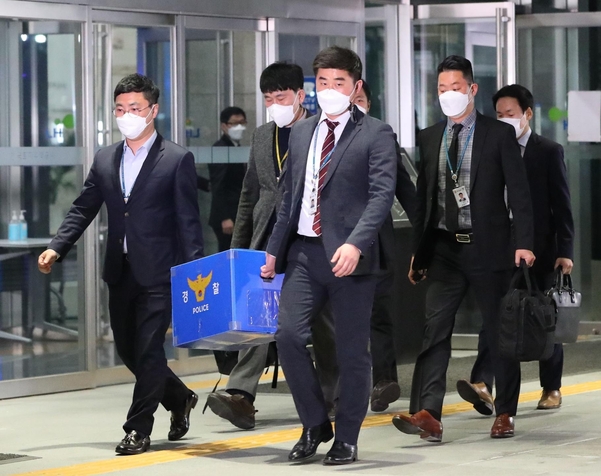Input 2021.03.23 16:00
Although it is realistically judged that retrospective application is unconstitutional and cannot be applied, some people are questioning whether or not the party government has pushed forward policies that possessed retroactive legislation such as the leasing law in the past. Some say that Prime Minister Jeong Sye-gyun’s proclamation that “we should be disgraced by corruption actors” has also been overshadowed.

This amendment was decided by the Committee as an alternative by reviewing 14 amendments to the Special Act on Public Housing and 10 amendments to the Korea Land and Housing Corporation (LH) Act. In the amendment, the use of undisclosed information related to the designation of housing districts for real estate sales or for providing or leaking information to others would result in imprisonment for up to 5 years or a fine of 3 to 5 times the speculative profit. If speculative profit is more than 5 billion won, the maximum life imprisonment will be imposed. Property or property gains acquired through criminal acts are confiscated and collected.
In the existing Public Housing Special Act, imprisonment for not more than 5 years or a fine of 50 million won or less were punishment regulations, and there was no provision for confiscation or collection. The revised bill greatly strengthened the punishment compared to before.
Although some of the amendments originally issued by lawmakers were specified for retrospective application, it was controversial as it appeared to be omitted from the committee’s alternatives. In the minutes of the meeting, Democratic Party lawmaker Heo Young, Kim Gyo-heung, and Justice Party lawmaker Shim Sang-jeong argued for retrospective application, while sub-committee chairman Cho Eung-cheon and Democratic Party lawmaker opposed it.
Rep. Cho said, “It is pro-Japanese property or corrupt property that the retroactive effect of confiscation, additional punishment, or punishment is recognized,” he said. “The retroactive effect that harms the people’s property and body is likely to be unconstitutional out of almost 100%.” He then commented, “It would be cool to do retroactive effect considering the feelings of the people’s law, but it is extremely dangerous to make legislation that goes beyond the constitution due to anger.”
Experts also interpret that retrospective application was unconstitutional and was an inevitable decision. Professor Shim Gyo-eon of Konkuk University’s Department of Real Estate said, “It should be applied retrospectively due to public sentiment, but considering the basis of the rule of law, retrospective application is a bad legislation.” Said.
Young-soo Jang, a professor at the Graduate School of Law at Korea University, also said, “The’retroactive incompetence’ that changes the legislation while a criminal act is in progress is not a violation of the Constitution, but the case of LH employees has already ended speculation, so it is truly retroactive, not retroactive injustice. “Even if the National Assembly legislated by reflecting retrospective application, it would be unconstitutional.”
However, there is a reaction among the people that it is not acceptable. On the 12th at the Blue House National Petition, a post titled’Why did you apply only the lease law retrospectively?’ was posted on the 12th. The petitioner wrote, “The (LH) Anti-Corruption Act 5 is said to be difficult to apply because of the controversy over unconstitutionality.”
In fact, the government implemented the lease law in July of last year, and applied the right to apply for contract renewal and the 5% limit on rent for cheonsei as well as new contracts as well as existing contracts before the enforcement of the law. As the controversy over retroactive application was dated, the Ministry of Land, Infrastructure and Transport said, “There is a need for widespread protection of tenants and the need to prevent a sudden surge in rent for cheonsei, so there is a very high need for the public interest to apply the 3rd Lease Act to existing contracts. Even in the 6/17 real estate countermeasures ahead of this, the government was criticized for retrospectively applying the mortgage loan ratio (LTV) regulation by designating areas subject to adjustment and overheated speculation areas.
In response, Professor Sim said, “It was of course a bad policy that the government applied retroactively as in the case above.” “Isn’t it necessary to interpret it?”
Professor Jang also said, “Lawfully, the change in the lease law is a matter of not keeping the previous promises, but it is not a retrospective problem.”
Meanwhile, LH employees are currently in law with the police as an anti-corruption law. This Act requires public officials to be punished by imprisonment for not more than 7 years or a fine of not more than 70 million won when they take advantage of property or property by using secrets learned during business processing. Confiscation of speculative profits and collection are also set as penalties.
However, the amendment to the Special Public Housing Act penalizes the use of undisclosed information for real estate sales, whereas the Anti-Corruption Act penalizes’acquired property or property gains’, making it difficult to apply the law to LH employees who have not yet paid land compensation. Some opinions also come from. Investigating agencies have the task of proving business relevance, whether it is the amendment to the Special Act on Public Housing or the Anti-Corruption Act.
